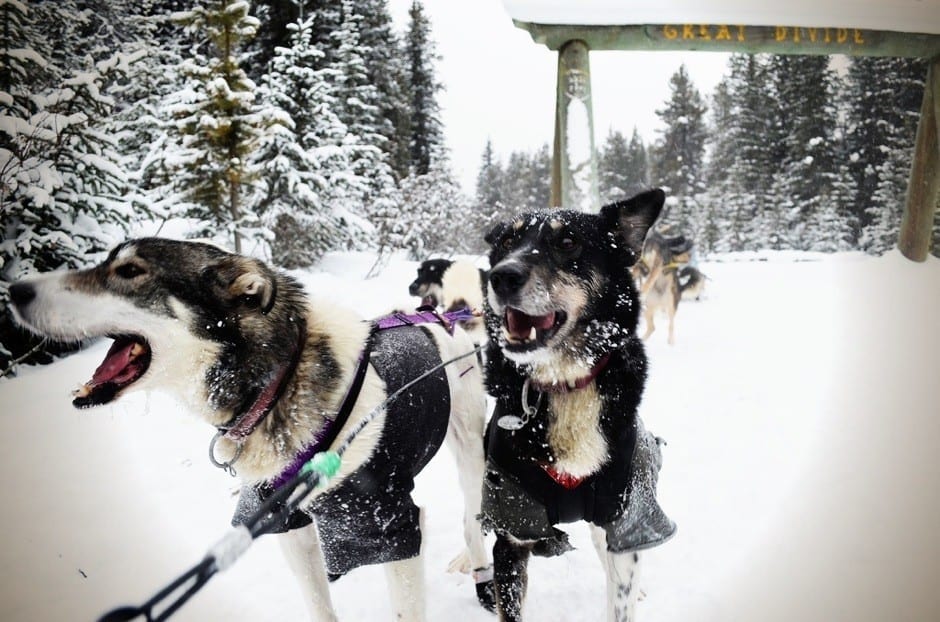A few weeks ago I published an informative guest post by Amanda Williams all about Sustainable Tourism. I particularly enjoyed the post because while it’s easy to bandy about the term ‘sustainable,’ very few people actually understand what it means to practice sustainable travel. I know I didn’t truly understand all the implications. After a recent trip to Alberta, Canada though two of the tenets of sustainable tourism really hit home, economic and socio-cultural sustainability.
In her post, Amanda defines economic sustainability as “building linkages and reducing leakages – essentially, keeping the money local.” She goes on to call the money aspect the most important in creating a truly sustainable travel experience. Socio-cultural is defined as “minimizing negative impacts [of tourism] and focusing on more positive ones, such as promoting cultural exchange and preserving local traditions.” While I understood the definitions and the rationale behind both, recent experiences really proved to me the importance of these legs of the sustainable travel stool.
While traveling through the Banff/Lake Louise region, I was fortunate enough to experience some of the activities that make the area great. Hot springs, snow tubing and exploring nature were all highlights, but one of my favorite activities was dogsledding with Kingmik Dogsled Tours. I’ll fully detail my experience with them in a future post, but I first want to share what I learned from the experience.

Megan is a seasoned vet of some of Canada’s most inhospitable areas. She’s explored the Northwest Territories, the Yukon and spots on the map that will probably never have a name. All of this has been done in the harshest of winter weather conditions and all in the name of training with her dogsled team, her true love in life. Megan is also the owner of Kingmik Dogsled Tours, a business she took over several years ago and has been growing ever since. Kingmik has a long history in the region and was the first to offer world class dogsled tours around the Lake Louise area. The tours have always been popular, and with good reason. The experience was an exhilarating one that I shall never forget. But since the economic downturn business has been down, as it has for most companies, and Megan is a little worried.
I have to admit, I fell in love with Kingmik tours during my excursion, but spending a couple of hours on a sled chatting with Megan taught me a lot, and convinced me that we had made the best decision possible by booking with them. The tours are obviously how Megan makes a living and how she can afford to care for her pups. But she also has several other mushers who contract with her, and as business waxes and wanes, so does their ability to take out visitors and make money. Don’t get me wrong, business is strong for them, but it’s not what it used to be.
So what’s the point you’re probably wondering as you read this. The point is that we could have done a lot of things that day. We could have gone skiing, visited a spa, even taken a helicopter tour. While some of these activities would have benefited the local community, not all would have and none in the way that mushing with Megan and her dogs could have done. We weren’t just putting money into her coffers, every visitor who goes on a dogsled excursion also helps perpetuate a tradition. If business slows, if people stop visiting and going on dogsled tours, then how can they learn about the important role sledding has played throughout Canadian and even American history? (For the U.S. it’s Alaska mostly, Google Balto if you want to know more)

The most telling thing Megan said to me that snowy Sunday was that “if people don’t come, Canadian, Americans, or whoever, how can they learn about this important heritage?” And that’s exactly right.
What amazed me is that this was just one 2-hour excursion with one company. But if you multiply that across the span of a typical vacation, then multiple that by the number of visitors, you can quickly see how many times people are confronted with the decision to support something that helps both the economic and societal sustainability of the region, or not.
We can’t always make the right choices, we’re not perfect. But a little research and a little determination to really help local communities when we travel can and does make a huge impact on people’s lives. It helps people like Megan whose love in life is racing with her pups and maintaining a way of life that has defined the rugged determination of Canadians for more than a century.
What do you think? Do you try to patronize local businesses when you travel or is it not a concern?

